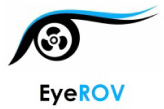AI Powered Software Testing Course in Tamil
Get the competitive edge in Software Testing with our customized course in Tamil. Master test design, analysis, and report techniques. Get the aptitude for delivering defect-free solutions. Enroll now!
Online
Placement Assistance


Overview of Our Software Testing Course in Tamil
Discover the principles and practices of software testing in our specialized Tamil course. Understand contemporary testing methods, agile, and DevOps integration, along with automated and security testing. Get hands-on training using leading industry tools such as Selenium and JMeter for ensuring quality and managing risks with software. Developers, QA engineers, and project managers will gain the necessary skills in this course for delivering high-quality software solutions
_1575.webp)
Industry Expert Sessions

Inclusive & Immersive Hybrid Training Sessions

80+ Live & Recorded Sessions

Soft Skill Sessions
_7003.webp)
Industry Networking

Placement Training

Illinois Tech Certification

Placement Support
Skills Covered
Our comprehensive software testing course covers all the essential skills required for a testing role. These are the key skills you will master:
Tools Covered
Illuminate the path to insights! Learn Software Testing with these necessary tools!
Software Testing Job Roles
After completing the Entri Elevate software testing course, you can explore various lucrative job opportunities in the tech industry. Here are some positions you might want to consider:
Software Tester
Responsible for executing test cases, identifying defects, and ensuring software quality.
Test Engineer
Designs and executes test cases, identifies defects, and ensures the overall quality of software products.
Automation Test Engineer
Develops and maintains automated test scripts using tools like Selenium, Appium, or Robot Framework to improve testing efficiency.
Manual Tester
Conducts manual testing activities such as test case execution, defect reporting, and regression testing without relying on automated tools.
Performance Tester
Specializes in testing the performance and scalability of software applications under different load conditions.
Test Analyst
Analyzes testing requirements, designs test plans, and performs testing activities to validate software functionality.
Quality Analyst
Analyzes software requirements, designs test cases, and ensures that software products meet quality standards.
QA Tester
Conducts quality assurance activities including test planning, execution, and defect management to ensure software quality.
Software Testing Course Curriculum
The curriculum is designed to help you learn the skills required to become a successful software Testing professional. Here is the Updated software testing course syllabus
-
What is Testing? Why do we need testing? Quality Assurance vs Quality Control
-
Types of Applications, Principles of Software Testing
-
Verification and Validation, Static and Dynamic Testing
-
SDLC Phases, SDLC Models: Waterfall, V-Model, Iterative, Incremental, Agile, Agile with Scrum Framework
-
STLC: Requirement Analysis, Test Planning, Test Case Design, Test Case Review, Test Environment Setup, Test Case Execution
-
Defect Life Cycle (Mistake, Bug, Defect, Error)
-
Test Summary, Test Signoff
-
Functional Testing Types, Non-Functional Testing Types
-
Jira Installation, Test Cases creation/execution/defect raising/retesting
Assignments & Mini Project: End of module tasks and manual testing project work including review days and mock interviews.
-
MySQL Introduction, Installation, Data Types, Basic Queries (create, insert, update, delete, and/or, order by)
-
Aggregate Functions, Constraints, Joins
Assignments: Module end tasks on MySQL queries and database concepts.
-
Introduction & Installation (JAVA, Eclipse, JDK, JRE, JVM)
-
JAVA Basics: Class, Object, Methods
-
Data Types: Primitive & Non-Primitive, Operators (Arithmetic, Unary, Assignment, Relational, Bitwise, Logical)
-
Control Statements (if, else if, switch, break, continue)
-
Arrays & Types, String & String Functions
-
Advanced Topics: String Buffer/Builder, Type Casting, Wrapper Classes, Types of Methods (static, non-static)
-
OOP Concepts: Inheritance (Single, Multi-Level, Hierarchical, Hybrid, Multiple), Polymorphism (overloading/overriding), Abstraction, Interface
-
Constructors (Default, Parameterized), Encapsulation
-
Collections, Exception Handling, JAVA keywords (this, super, final, finally)
Assignments: Programming tasks using control statements, arrays, strings, and OOPs.
-
Fundamentals & Advantages of Automation
-
Selenium: Introduction, Components, Features, Versions
-
Selenium IDE: Installing & scripting, Elements location
-
Selenium WebDriver: Overview, Configuring, Architecture, Drivers, Locating & Handling Elements, Multi-browser testing, Synchronization/Waits, Handling JS alerts, prompts, confirmations
-
TestNG Framework: Features, Annotations, Assertions, Reports, Parallel test execution, TestNG configuration, Failed scripts re-run
-
Automation Project, Frameworks, Data driven testing with POI, Excel, POM, Cucumber framework, BDD, GitHub, Maven, Jenkins
Assignments: Automation scripts and framework building tasks.
- Introduction to Selenium Advantages & Disadvantages
- Selenium Components Selenium Grid
- Selenium IDE IDE – Record and Play in Selenium IDE
- Installation of Eclipse Download selenium & browser drivers
- Introduction to Automation Testing Automation Testing Frameworks (e.g.: Selenium, Appium, TestNG)
- Selenium WebDriver Basics Locators (XPath, CSS, ID, etc.)
- Selenium WebDriver Commands
- Browser Commands
- Drop down command
- Xpath
- Mouse hovering
- Double Click & Right Click
- Drag and drop
- Wait commands
- Screenshot capture in Selenium
-
Introduction to AI in Testing
-
Katalon Studio: Setup & Usage (manual vs script mode)
-
Browser Stack: Setup, cross-browser testing, free/paid tier features
-
Low-code Automation: Using BrowserStack Live
-
Industry/Placement Preparation: Career support, resume review, industry mentorship
Other Additions
-
Capstone Project & Mini Projects at end of course
-
Comprehensive placement assistance and career support
Eligibility / Pre-requisites for Joining Software Testing Course
There is no specific age limit or educational background required to join the Software Testing Course. However, having a basic understanding of mathematics and programming can be helpful.

Critical Thinking and Problem-Solving Skills
The ability to analyze problems, think critically, and come up with effective solutions is important in software testing.

Basic Mathematical skills
Basic arithmetic operations, understanding of variables, and algebraic expressions.

Basic Computer Skills
Proficiency in using computers, navigating operating systems (e.g., Windows, macOS, Linux), and familiarity with basic software applications.
_160.webp)
Logical Thinking
Being able to Analyze and evaluate a problem and then come up with a sensible solutions
_8427.webp)
Critical thinking
Ability to evaluate different solutions and choose the most appropriate one.
See Where Our Students Are Working
Connecting you with leading companies and unlocking opportunities
Why Live Sessions?
Offering live sessions as part of a software testing course can provide several benefits:
Live Interaction
Live sessions provide students with the opportunity to engage with instructors and classmates in real-time, making it easier to clarify doubts and ask questions on the spot.
Immediate Feedback
During live sessions, students get instant feedback on their understanding and performance, helping them pinpoint areas that need improvement and make necessary changes.
Demonstration of Concepts
Instructors can demonstrate software testing concepts, techniques, and tools live, allowing students to observe and learn through practical examples.
Joint Learning
These sessions promote collaboration and knowledge sharing among students, fostering a sense of community and enhancing learning through peer interactions.
Increased Retention
The engaging nature of live sessions can boost information retention, as students actively participate in discussions, exercises, and problem-solving activities.

Your Mentors
Learn Software Testing Concepts from from top-notch mentors
Software Testing Course Certificates
Courses Recognised by


Frequently Asked Questions
Key Learning Outcomes from the Software Testing Course
The key learning outcomes from the "Entri Elevate Testing Course in Tamil" are as follows:
Software Testing Fundamentals
Students will grasp the principles and concepts of software testing, including the goals of testing, various types of testing, levels of testing, and techniques such as black-box and white-box testing.
Manual Testing
The course focuses on developing manual testing skills, which include designing test cases, executing tests, reporting defects, and verifying fixes. Manual testing is essential for ensuring software functionality and enhancing user experience.
Automation Testing
Comprehend automation testing using software tools to automate test cases. They'll cover benefits, frameworks, scripting languages, and best practices for scalable tests.
Selenium WebDriver
Understand how to use Selenium WebDriver, an open-source tool for testing web applications. You will gain hands-on experience on how to set it up, write test scripts in Java, locate elements on web pages.
Performance Testing
Learners will explore performance testing for software applications, examining different tools, methodologies, and techniques for evaluating performance and identifying bottlenecks.

Frequently Asked Question About Software Testing Course
Software testing is the process of verifying that a software application or system works correctly and meets requirements. It involves running tests to find errors or bugs, and ensuring the software is of high quality.
The demand for skilled software testers in India is high, with many IT companies actively recruiting for testing roles. Both multinational corporations and domestic companies offer opportunities in this field. They often have opportunities for career growth, with paths leading to senior testing roles, test management, quality assurance leadership positions, or transitioning into other areas of software development or IT management.
Yes. Software testing can be a good career choice due to its high demand, offering opportunities for growth and advancement. With the increasing complexity of software applications, skilled testers are essential for ensuring quality and reliability. The field provides diverse opportunities across various industries, allowing professionals to work on different projects and technologies. Continuous learning is inherent in testing, as it involves staying updated with evolving methodologies and tools. Testers contribute significantly to the success of software projects by identifying and addressing issues, making the role intellectually stimulating and rewarding for those who enjoy problem-solving and have strong analytical skills.
principles is essential. Candidates need to get familiarizing themselves with testing methodologies, tools, and frameworks. Getting practical experience through internships or volunteer opportunities can be beneficial. Besides, Create a portfolio showcasing your testing projects and network with professionals in the field. Continuously seeking opportunities for learning and improvement to advance in your software testing career will help to build a good career base.
To enrich your skills and deepen your knowledge, consider enrolling in software learning courses. Platforms like Entri offer comprehensive resources for learning software testing. By participating in these courses, you can gain valuable insights and hands-on experience to sharpen your testing expertise.
Software testing can be a good and fulfilling career choice in 2024. There is currently a high demand for skilled software testers in various industries, which ensures ample job opportunities. Software testing offers possibilities for career growth and advancement, with ways leading to senior testing roles, test management, and quality assurance leadership positions. Also, software testers play a crucial role in ensuring the quality and reliability of software products, contributing to customer satisfaction and the success of software projects. For individuals who enjoy problem-solving, have strong analytical skills, and value continuous learning, software testing can indeed be a fulfilling and good career option in 2024.
The difficulty level in software testing courses can vary based on factors such as the depth of the curriculum, the learner's prior knowledge and experience, and the teaching style of the instructor or learning platform. Some individuals may find software testing to be comfortable, especially if they have a strong understanding of software development concepts and logical thinking skills. However, others may need to exert more effort to understand the complexities of testing methodologies, tools, and techniques.
Find Other Up-skill Programs
Entri App highlighted in the News
Advantages of Learning Entri's Elevate Software Testing Course
Elevate Learning Experience
Comprehensive Curriculum
Entri offers a well-structured curriculum that encompasses all facets of software testing, ranging from the basics to more advanced techniques.
Practical Learning:
The Software Testing Course emphasizes hands-on exercises and projects, enabling learners to effectively apply their theoretical knowledge in real-world situations.
Experienced Instructors:
By employing instructors with real industry experience in software testing, we provide valuable insights, tips, and best practices drawn from actual projects.
Flexibility:
We offer flexible learning options, including self-paced courses and live classes, to cater to various learning styles and schedules
Certification:
Upon completion of Entri courses, learners receive certification, which enhances their credibility and career opportunities in software testing.
Continuous Learning and Updates:
Entri Elevate ensures its curriculum is regularly updated with the latest industry trends, tools, and methodologies in software testing, helping learners stay relevant in a fast-changing field.
Career Support
Personalized Industry Mentorship
Receive mentorship from an experienced professional and get tailored feedback for improved career guidance.
Resume Review
Alongside technical skills, we assist you in developing essential soft skills like communication and problem-solving.
24/7 Availability
You can access course materials and study at your convenience, even outside of regular class hours.
Live soft skill training
Learners will also receive additional training in soft skills to support their placement efforts after the program.
Who Can Apply
- Students
- Professionals
- Career Switchers
- Job Seekers
- House Wife
- Un-employed
- Freelancers







_3995.webp)

_4827.webp)














_2062.webp)

_9523.webp)













_7366.webp)



_7758.webp)
_8019.webp)





_9844.webp)





